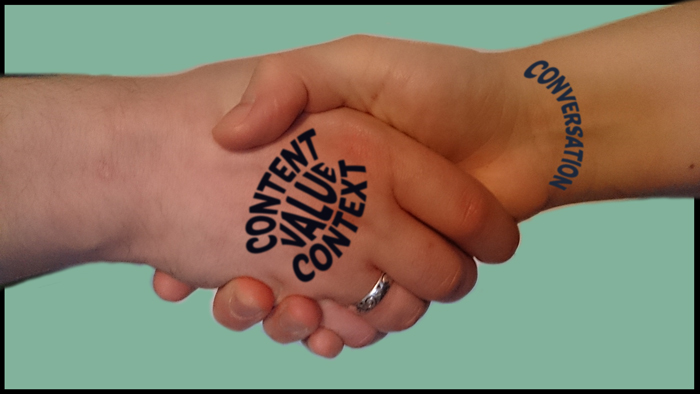
This may seem an idiotic question. Eight hundred words about what, you might ask. Is it an exclusive front-page story that will double tomorrow’s newspaper sales? Is it a blog post so moving it inspires hundreds of people to club together to save a human life? Is it a placed article that prompts an investment bank to splash out $2m on some new email-monitoring software? Is it 800 words of gobbledygook produced by a cat falling asleep on an unattended keyboard?
Copywriters are forced to treat words as a commodity
“Eight hundred words”, on its own, has no intrinsic value. Yet, as someone who runs a copywriting agency, I have to assign it one, because I have to tell clients how much it will cost them to have an 800-word piece written. So (like most copywriters, I imagine), I assign it a value based on how many hours it typically takes to write 800 words, multiplied by an hourly rate.
(Never mind that it can take anywhere from two to 12 hours to produce the exactly-right combination of 800 words, depending on a myriad of variables including how good the brief is; how much additional research we need to do; how well we know the client’s business; how well we know the topic and the audience; how often the phone rings while we’re writing, etc.)
In that way we’ve been able to assign a more-or-less fixed price to a block of 800 words, so clients can factor it into their budget.
Establishing the true business value of copy: two anecdotes
But the actual value of a given block of 800 words? That’s a completely different thing. In the 11 years I’ve been a full-time copywriter, I’ve been able to trace my writing directly to an actual monetary value exactly twice.
The first was the placed article mentioned above, for an email-monitoring software vendor, about how bank employees could land banks in regulatory hot water if they used email (accidentally or deliberately) to disclose confidential information.
The PR firm I worked for placed the article in a New York-based financial risk magazine. A chief risk officer in a Wall Street investment bank happened to be reading that very issue of the magazine when, by an incredibly lucky chance, a salesperson from my client called him.
“I’ve just been reading about your software,” said the CRO, apparently. “We should get you in to talk.” The resulting conversation led to a $2m deal for my client.
In my vainer moments I like to think that, on that particular day, my 800 words were worth $2m. In reality there were many factors involved, not least the fact that the salesperson called when they did: a fortuitous combination of content, context and conversation that Bob Apollo identifies as the key to content marketing success. But the business value of those 800 words is still pretty clear.
The second time was more recently. I was chatting to a salesperson at my client to get some background on a new customer, prior to interviewing that customer for a case study. “How did they come across you in the first place?” I asked, since the new customer was from an industry sector that my client didn’t really operate in. “They read our case study about XXX and got in touch,” he said. I was chuffed to realise it was a case study that I’d written. That initial contact apparently led to a £14k consulting engagement, an ROI that not only paid for the original case study, but also every single other piece of work we did for that client last year, with loads of change left over.
Marketing only provides part of the picture
If only we could always trace our copy all the way through to its financial result, we’d be in a much better position to demonstrate its true value to clients and prospects.
There are plenty of instances where we’ve been able to follow it part of the way. The set of 20 reports we wrote for one client last year led to 10 sales meetings with big blue-chip companies. An account-based marketing campaign for which we wrote some of the copy led to two sales meetings with a potential value of $1m. A webinar invite we wrote generated the highest attendance ever recorded in that client’s webinar series.
All of which is great, but the trail almost always goes cold at the bottom of the marketing funnel. Unless we get to hear of it anecdotally, it’s extraordinarily rare to get any feedback about anything that happens once the lead has gone over to Sales. And, truth be told, it’s also rare to get any formal feedback from our Marketing clients about how well the campaigns we worked on performed.
Will marketing automation change the way we value copy?
My hope is that now marketers are getting more used to tracking campaign performance with marketing automation software, providing feedback to the copywriters on campaign performance will become second nature. Then we’ll be much better equipped to understand the true value of copy – and to price our services accordingly.
